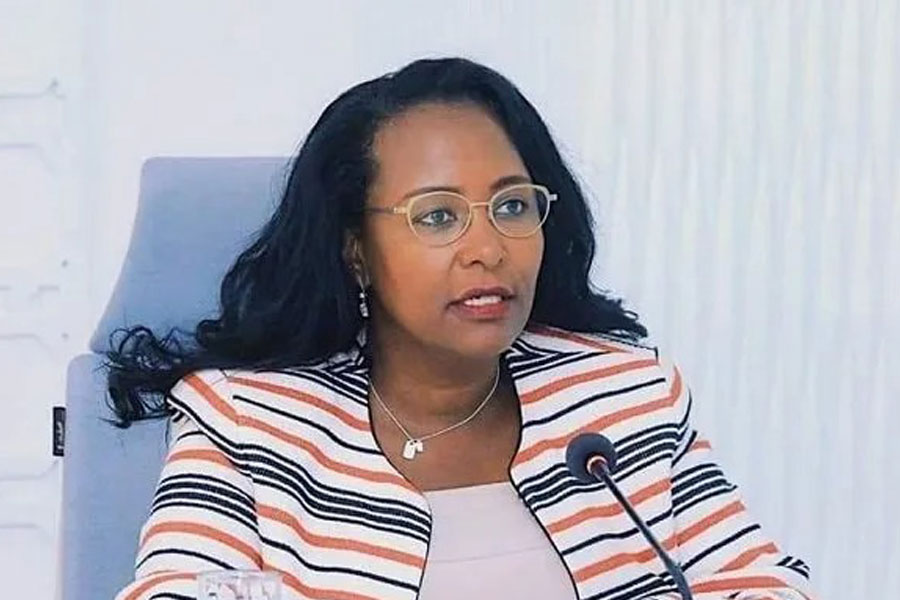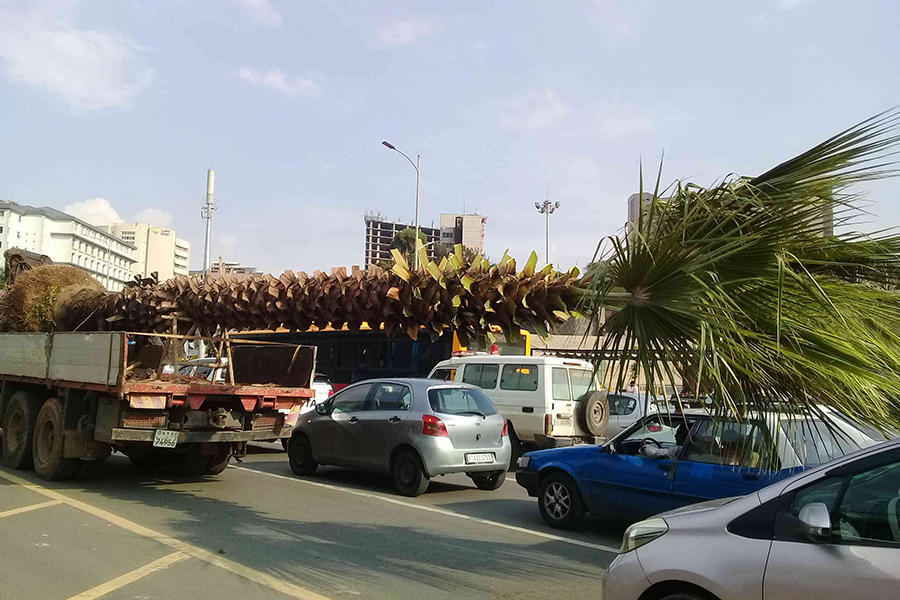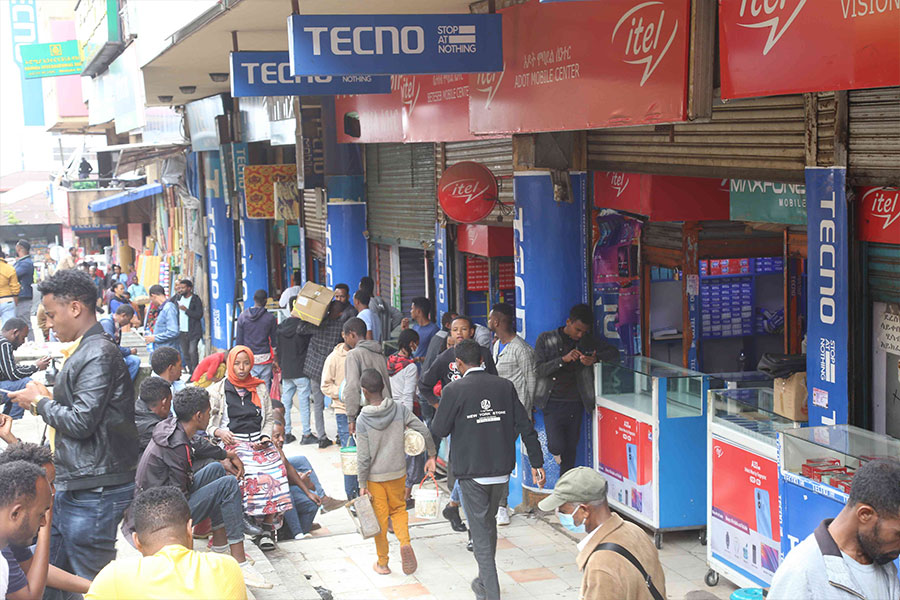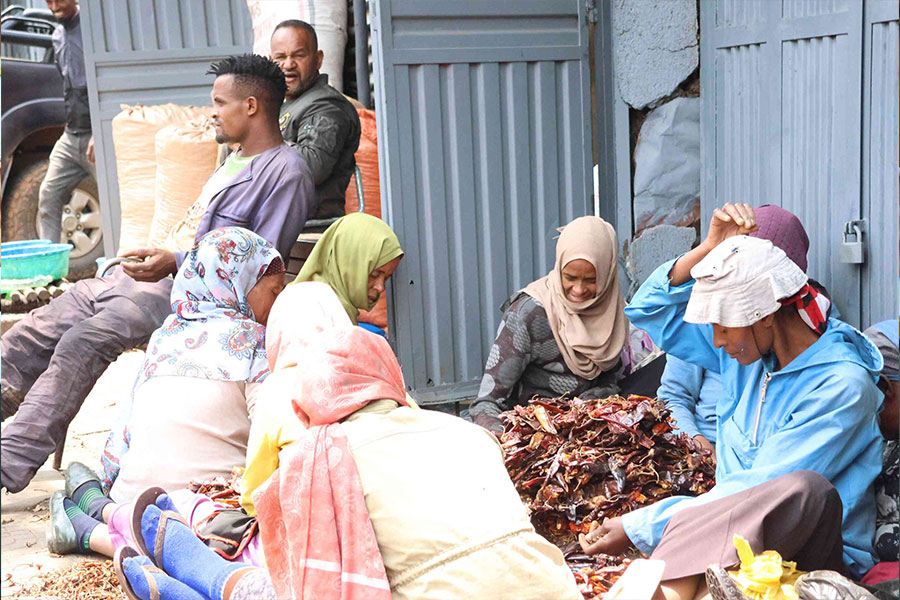
Radar | Nov 16,2019
Ethiopia has taken a significant step in tourism data analysis by introducing the Tourism Satellite Account (TSA), a framework for quantifying the sector's contribution to GDP, investment, and employment.
In reaction to several decades of a varied approach to measuring the impact of tourism on economies, TSA has been proposed to provide consistent and comprehensive measurements with countries’ own systems of national accounts. The Account helps to monitor the development of the sector in the national economy, measuring both monetary and non-monetary aspects.
The TSA project was an initiative that began over a year ago under the Ministry of Tourism (MoT), alongside a technical committee from the central bank, the Ministry of Planning and Development, Ethiopian Immigration Citizenship Services, and Ethiopian Airlines, while technical backing was provided by the United Nations Economic Commission for Africa (UNECA).
Officials anticipate that the tool will not only pinpoint the direct economic benefits of tourism but also trace its broader economic ripple effects throughout related sectors.
Last week, a high-level inauguration was held at Adwa Victory Memorial Museum with the presence of MoT Minister Nasise Chali where TSA was marked as a milestone. "It will impact and revolutionise how we see the contribution of the sector to the economy," she said, while emphasizing that it will bridge data gaps and boost foreign exchange and investment.
The framework considered incoming, domestic, and outgoing tourism in calculating economic growth. The year 2019 has been taken as a benchmark—a peak period for the tourism sector.
The study has identified a total of 811,000 international and 433,000 domestic tourists registering close to 141 million dollars in 2019. Total gross fixed capital formation was estimated at 949 billion Br with collective consumption of tourism locally assessed at around 3.5 billion Br in 2019. The contribution of tourism to collective consumption was 0.9pc.
According to Tewodros Derbew, delivery unit lead coordinator at MoT and TSA committee member, the country's pioneering TSA will determine tourism's direct and indirect impacts on the economy, facilitate the identification of growth opportunities and challenges, and support evidence-based policy formulation and strategic planning.
He points to a lack of a robust statistical framework to accurately measure and analyse the sector’s economic contributions to growth adding that previously, a proxy used from immigration authorities failed to capture the sector’s economic impact.
"This framework refutes all the previous studies made on the country's tourism contribution," he stated, noting that previous studies have been based on unreliable indicators that have not capsulated the real data.
The principles of national income accounting promulgated in 1993 by the United Nations and other multi-lateral organizations made provisions for satellite accounts. Ethiopia’s first foray, which took a year, consists of analysing in detail all the aspects of demand and the supply of services associated with tourism.
Tewodros stated TSA will determine tourism's direct and indirect impacts on the economy, facilitate the identification of growth opportunities and challenges, and support evidence-based policy formulation and strategic planning.”
"This will serve as a constant framework through the years," he said.
Through the TSA, the ministry has identified tourism's contribution to the country's overall GDP to be 2.7pc, while it has contributed 3.88pc of the nation’s employment.
Data from MoT indicates that Ethiopia earned a little over four billion dollars last year, accommodating close to 1.1 million tourists—indicating a significant revenue increase from two years ago. Tewodros stated that the tourism sector is now on a positive trajectory, reviving from the downturn of the last three years, with further growth expected, especially between September and October.
Ashenafi Mulugeta, president of Addis Abeba Hotel and Tourism Professionals Association, a lobby group of 1,000 members, states that this initiative has been overdue but still comes at a critical time to strengthen the sector.
He identified the past few years have been marred with significant challenges for tour operators who faced impediments to move from one place to another.
The sector, barely recovering from the impacts of the pandemic and a two-year civil war in the north, faced further setbacks with the eruption of further conflicts and subsequent declaration of a state of emergency in August last year.
"Tourism had declined by up to 95pc since then" he said.
According to Endy Assefa, a tour guide operating for the last 10 years, the TSA account is bound to have a positive guarantee of accuracy on businesses’ outlook for the coming years.
Accommodating around 1,300 tourists in all, he points to security challenges limiting options for tourists and hindering growth. Endy, also president of the Ethiopian Tourist Guides Professional Association (ETGPA) says that southern parts of the nation including Arbaminch, and Jinka have now become popular for visitors and lucrative for the sector.
"Peace is crucial to enhance tourism," Endy stated.
Before the Covid pandemic, the sector contributed nearly 4.8 billion dollars to GDP, and international tourist arrivals reached over 1.4 million, marking the peak of a decade of consistent growth.
Geoffrey Manyara, representative of the Eastern Africa Office director at UNECA, stated that during the pandemic in 2020, the country experienced a severe setback in international tourism, with visitor numbers plummeting by over 84pc from the previous year to approximately 228,200.
“Looking ahead, the future is promising, but it will require sustained effort and strategic planning,” he said.
Projections for the next 10 years suggest that with continued investment, Ethiopia’s tourism sector could surpass pre-pandemic levels by the late 2020s. It suggested a focus on enhancing infrastructure, improving security, and developing new tourism products like ecotourism.
Economists such as Arega Shumete point to the difficulty of knowing the GDP contributions of the service sector due to its complex linkages to various sectors and the subjectivity of informal activities.
He points out that the development of tourism projects will mean nothing if the country doesn't bring peace and security across the country. He adds that most of the strategic locations for tourism have been clogged by security concerns, creating wider issues to revive the sector. "The country has greatly ruined its image," he said. "It will take a lot of time to restore it."
PUBLISHED ON
Sep 22,2024 [ VOL
25 , NO
1273]

Radar | Nov 16,2019

Fortune News | Aug 09,2025

Commentaries | Feb 22,2020

Fortune News | Jun 27,2020

Fortune News | Jun 19,2021

Fortune News | Feb 04,2023

Radar | Mar 18,2023

Fortune News | Feb 11,2023

Agenda | Aug 14,2022

Agenda | Jul 06,2025

Dec 22 , 2024 . By TIZITA SHEWAFERAW
Charged with transforming colossal state-owned enterprises into modern and competitiv...

Aug 18 , 2024 . By AKSAH ITALO
Although predictable Yonas Zerihun's job in the ride-hailing service is not immune to...

Jul 28 , 2024 . By TIZITA SHEWAFERAW
Unhabitual, perhaps too many, Samuel Gebreyohannes, 38, used to occasionally enjoy a couple of beers at breakfast. However, he recently swit...

Jul 13 , 2024 . By AKSAH ITALO
Investors who rely on tractors, trucks, and field vehicles for commuting, transporting commodities, and f...

Nov 1 , 2025
The National Bank of Ethiopia (NBE) issued a statement two weeks ago that appeared to...

Oct 25 , 2025
The regulatory machinery is on overdrive. In only two years, no fewer than 35 new pro...

Oct 18 , 2025
The political establishment, notably the ruling party and its top brass, has become p...

Oct 11 , 2025
Ladislas Farago, a roving Associated Press (AP) correspondent, arrived in Ethiopia in...